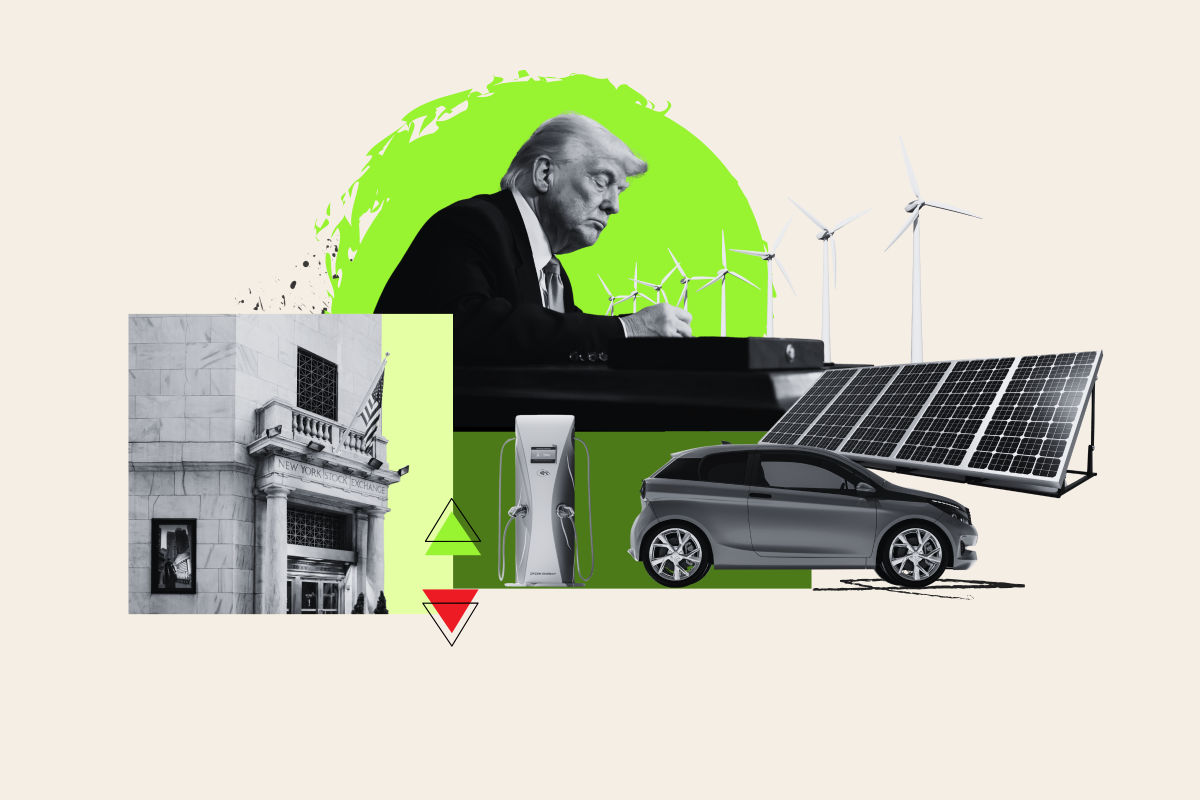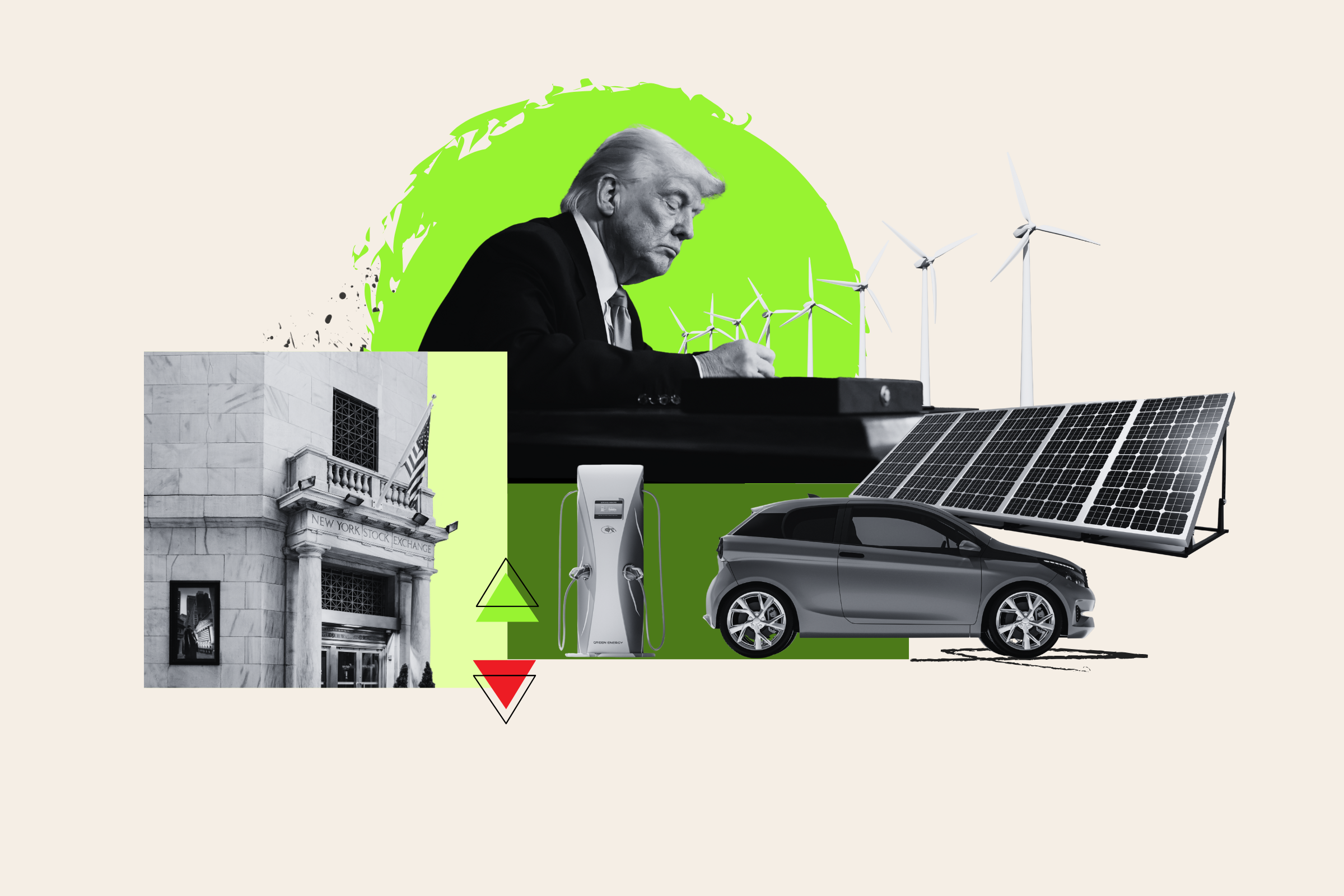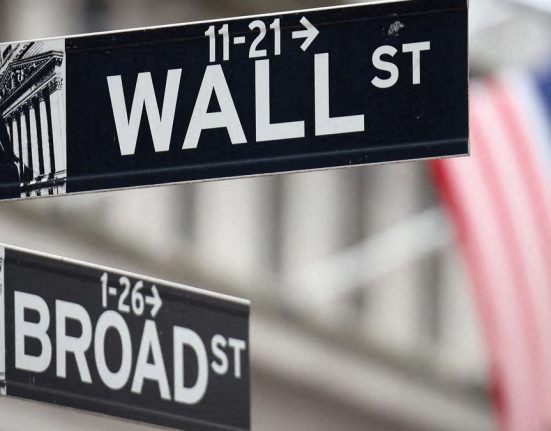Daniel Weiss is the co-founder and managing partner of Angeleno Group, a Los Angeles-based venture capital and growth equity investment firm founded in 2001 to seek out opportunities in what was then called “alternative energy.”
Not quite a quarter of a century later, solar and wind power have gone from alternative to mainstream.
“The basic economics of clean energy have transformed in the last 20 years,” Weiss told Newsweek. “A big part of the reason for that is that it’s simply more cost effective.”
The combinations of solar or wind with battery storage have become the cheapest and fastest ways to add power capacity and they provided more than 90 percent of the new electricity sources added to the U.S. grid last year.

Newsweek Illustration/Canva/Getty
With the current surge in demand for power, market forces should be driving clean energy and climate-friendly technology companies to new heights. But the Trump administration’s hostile posture toward renewable energy and climate policy has brought volatility and slower growth.
Weiss said the best way to make sense of this moment is to “zoom in and zoom out.
Zoom in to the past 8 months in the U.S. and you’ll find a “steady drum beat of bad news” for the sector.
“Investment has slowed in certain parts of the space,” Weiss said. Zoom out to a global perspective long-term view, however, and a very different picture emerges. “One might even make the case that this is one of the most compelling moments to be deploying capital, at least since we founded our firm 20 plus years ago,” Weiss said.
Newsweek‘s Better Planet has been talking with clean tech investors about how they are navigating these extraordinary times for a series called “Climate Investing in a Volatile Climate.” In this installment, we hear from two veteran investors in the sector, Weiss and Rob Day, co-founder and partner at Spring Lane Capital.
Both pointed to the sharp contrast between current U.S. policy and economic reality, and both predicted that market forces will overcome ideology.
President Donald Trump has eliminated most of his predecessor’s supportive policies for clean energy, pulled the U.S. out of the global Paris Climate Agreement and is seeking to do away with the legal basis for regulating greenhouse gas emissions altogether.
“It’s a pretty rocky road ahead in the near term, and there’s a lot of disruption,” Weiss said. In May, former U.S. Treasury Secretary and Federal Reserve Chair Janet Yellen joined Angeleno Group’s Board of Advisors to offer strategic guidance. Weiss said “global tailwinds are largely intact” for clean tech, with most other countries still committed to net-zero pledges.
Late last month, United Nations Secretary-General António Guterres called on countries to make more ambitious climate goals to take advantage of a “new energy era” of cheap, clean power.
“Nearly 80 percent of the world has sent a signal to capital markets, to investors that we’re on a long-term trajectory moving from a low efficiency, high carbon world to a higher efficiency, low carbon world,” he said.
The “universe of investment possibility” in clean tech today is much greater, he said, even though valuation for some companies is lower.
“So, deal flow is up, valuations are down,” he said, a combination that recalls legendary investor Warren Buffett’s advice to “be greedy only when others are fearful.”
The Clean Tech Hype Cycle
On the opposite coast in a downtown Boston office, Spring Lane Capital co-founder Rob Day said he sees the sector going through a phase similar to that identified in the Gartner hype cycle. In that model, emerging technologies eventually reach a period of realistic but robust growth. But first, there is a peak of inflated expectations, followed by what’s called a “trough of disillusionment,” which is where some clean tech companies find themselves now, Day said.
“I think for EVs in the U.S., in particular, we’re in the trough of disillusionment right now,” Day told Newsweek. Trump’s “One Big Beautiful” bill passed by Congressional Republicans last month phases out tax credits for EVs, and the maker of the best-selling EV model, Tesla, suffered blowback due to its controversial CEO.
But look beyond the headlines, Day said, and there are signs that EVs will soon pull out of the disillusionment trough.
“If you look at the underlying market numbers, adoption has continued to grow,” he said, as the lower total cost of ownership for EVs is still a compelling selling point.
Day said a similar dynamic is playing out for other clean technologies as the gloomy headlines about the demise of supportive federal policy drive away some recent arrivers who jumped into a “frothy” market.
The rate of growth has changed, he said, but clean tech is, by and large, still on a growth trajectory.
Day’s resume includes a consultant position at Bain & Company and a role with the World Resources Institute’s Sustainable Enterprise Program, and his Cleantech Investing column was required reading for many people in the sector through the Bush and Obama years. Over that period, he has seen the sector adjust as federal subsidies and policy support waxed and waned.
“We’ve learned how to operate within that kind of an environment before,” Day said.
His advice to investors in the sector: think more broadly about sustainability than just solar and wind—think about circular economy solutions, waste reduction and efficiency. Look to investment potential in states that have either supportive policies or basic needs for sustainability, such as a lack of landfill space or rising power demand. Also, he said, investors should look abroad. Just as Weiss pointed out the continued global support for climate action, Day said other countries are now taking greater advantage of the clean tech opportunities.
“The rest of the world is just absolutely stealing a march on us, and the U.S. is absolutely going to lose its leadership position on all of these technologies and solutions of tomorrow,” Day said. “And it’s a crying shame.”







